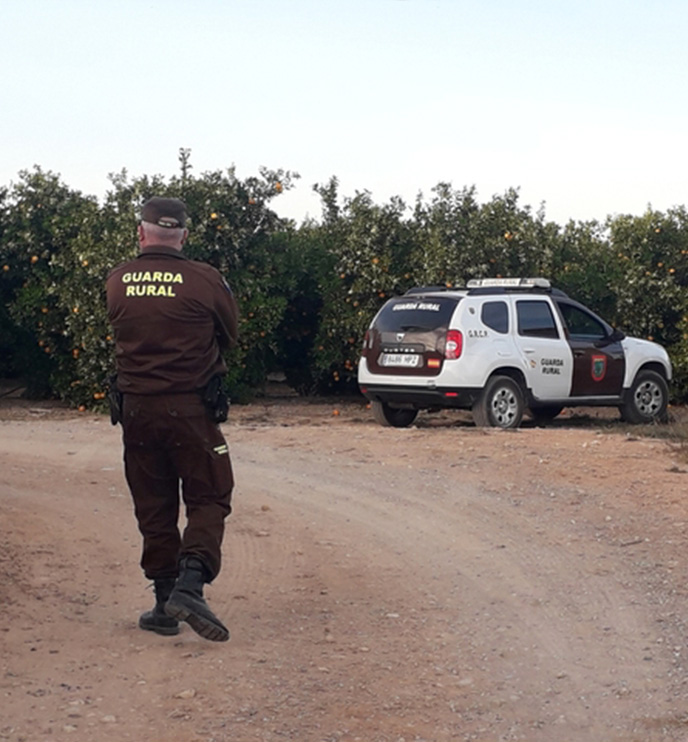
Rural Investment
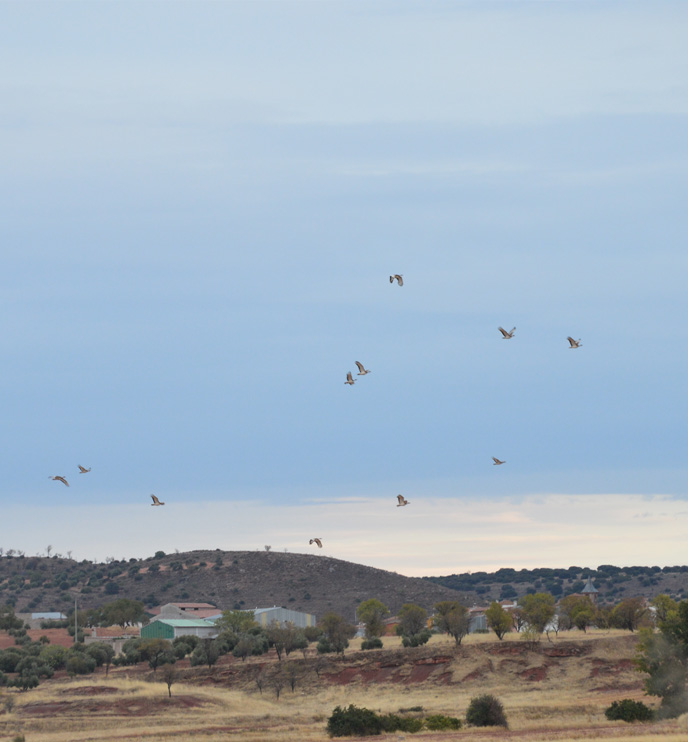
Natura 2000 Network
La red NATURA 2000 es un ejemplo claro del compromiso europeo con la biodiversidad y el medio RURAL. Esta protección tan especial de la naturaleza, fue creada para la gestión de la conservación de los espacios naturales de interés comunitario en Europa. España, tiene aproximadamente el 30% de todos estos espacios naturales de la Red Natura 2000 repartidos por toda la península ibérica, discurriendo tal extensión entre las poblaciones rurales alejadas de la urbe. La propia Directiva Hábitats de la Red Natura 2000, asume que << los éxitos y resultados de tal gestión, se deben principalmente a la participación activa de las personas rurales que conviven en estos espacios naturales tan emblemáticos >>, por ello, se establece que las medidas a adoptar “tendrán en cuenta las exigencias económicas, sociales y culturales, así como las particularidades regionales y locales de ámbito rural”, promoviendo principalmente el desarrollo en las zonas rurales con actividades económicas ligadas a los espacios protegidos, como labores de silvicultura, turísticas, recreativas, actividades agrarias, caza, etc.
Recalling the aforementioned, in Spain, 87% of the Spanish territory is home to hunting areas; 43.8 million hectares, spread over 32,817 hunting reserves, that collaborate directly to the Natura 2000 network, located mainly in disadvantaged rural areas where the key economic drivers are agriculture, hunting and livestock farming.
Socio-Economic report on hunting
The first socio-economic report on hunting in Spain, drawn up by the benchmark company, Deloitte, on behalf of the Artemisan Foundation, estimated that hunting in Spain generates around €6.5 billion of Spain’s GDP and creates 187,000 jobs in the RURAL environment. These data also reveal a figure of €300 million per year in direct investment in conservation and maintenance by private hunting managers, thereby benefiting the annual economic budgets of our governments in this regard.
Due to the aforementioned, Spain is the top hunting tourism destination, attracting people from all over the world, seeking hunting and biodiversity in our country.

Our contribution to the rural world
Cacerías Campo de Montiel goes to great lengths and invests significant amounts of money in the countryside, hunting and conservation. We are extremely proud to contribute to the rural economy, and are highly aware that hunting has contributed so much to these disadvantaged areas, in turn, contributing to the region’s rural economy.
For every EURO spent by hunters as part of their hunting trips, part of this money goes to game management which, in turn, is invested in the natural environment and the conservation of ALL species, feeding game and non-game species alike, including protected and endangered species. Hunting is life, long live hunting!!!!
¡¡¡¡La caza es vida, viva la caza!!!!

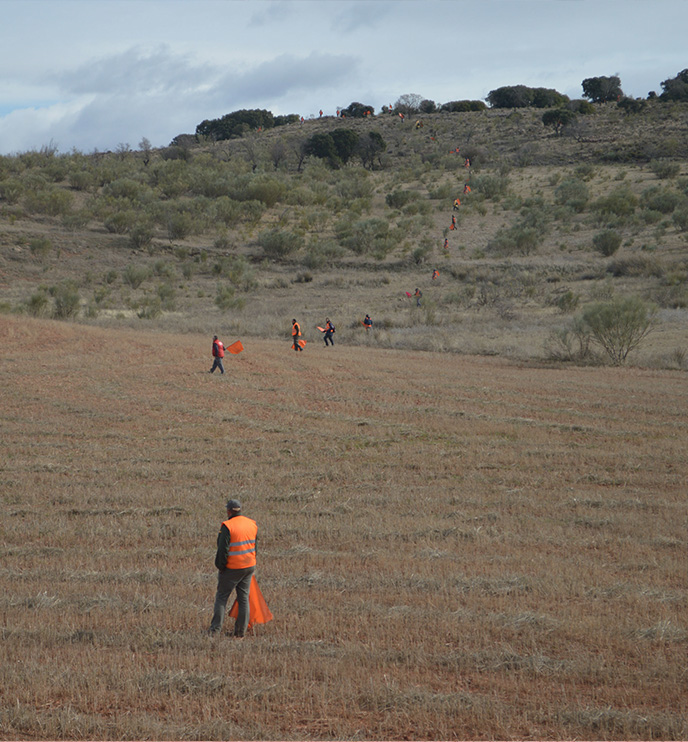
We create jobs
We give jobs to people in rural areas, working as: guides, guards, beaters, loaders, secretaries, drivers, cooks, cleaners, gunsmiths, farmers, maintenance workers, etc. Roughly 60 people are needed for one day of partridge beating.
We attract tourism
We contribute to the rural economy for 6 months of the year; we attract hunting tourists from other cities and other countries, who stay in hotels, hostels and farmhouses in the region, also providing substantial revenue to bars, cafes, restaurants and others.
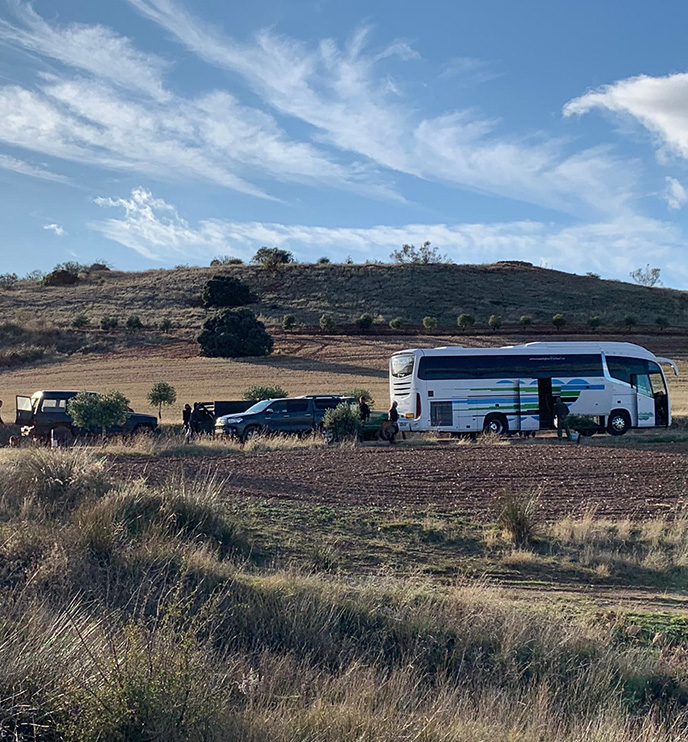
We support small companies
For every EURO that our hunters spend, we, in turn, invest in the services provided by the region’s small businesses; butchers, supermarkets, mechanics, bakeries, clothing stores, masonry, plumbing, electricity, carpentry, grain stores, hardware stores, among others… If our company welcomes hunters and, in turn, generates revenue, this money is, of course, distributed directly and indirectly to all these small rural businesses in the region and surrounding areas.

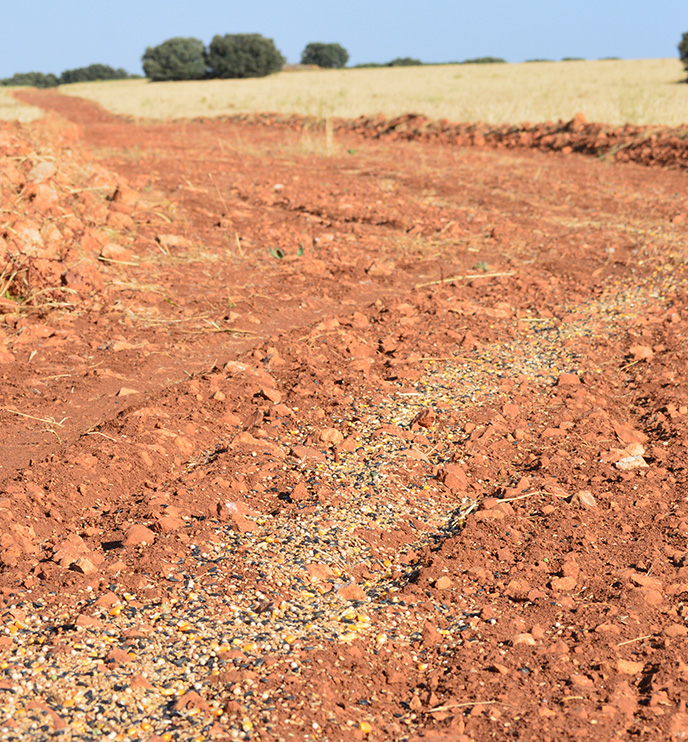
Food and water
Our hunting management includes planting organic cereal where needed, as well as providing food and water where it is most scarce, thereby covering all food, water and protection needs.
Construction of shelters
Building shelters is a very appropriate choice for the incubation of nests, as well as to protect the small and defenceless partridges from birds of prey and other predators.
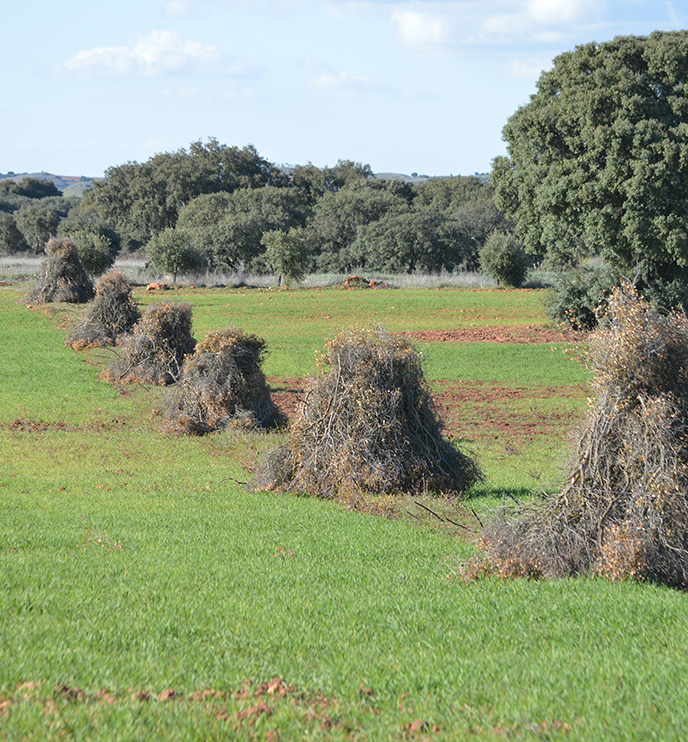
Road maintenance on our estates
We periodically repair the roads within our hunting estates as these are vital for access to all parts of the land and to properly manage them.
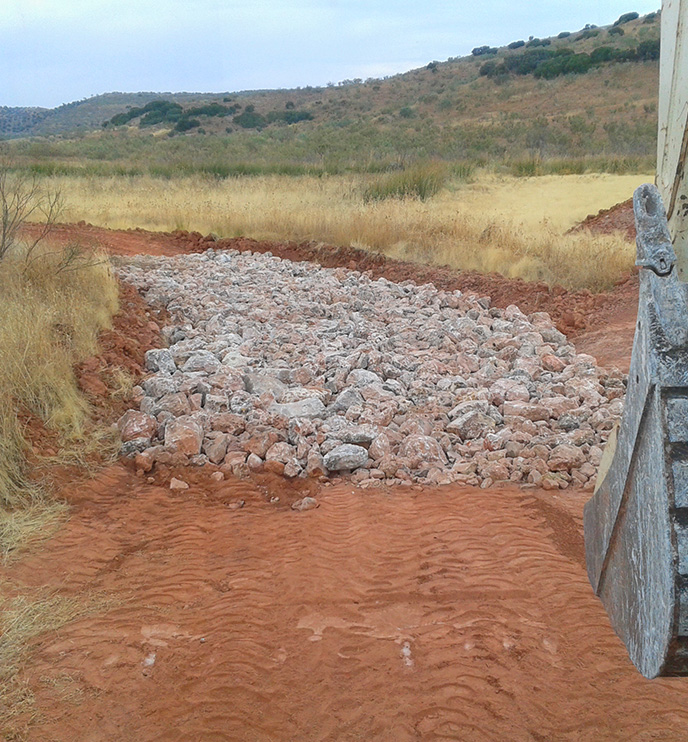
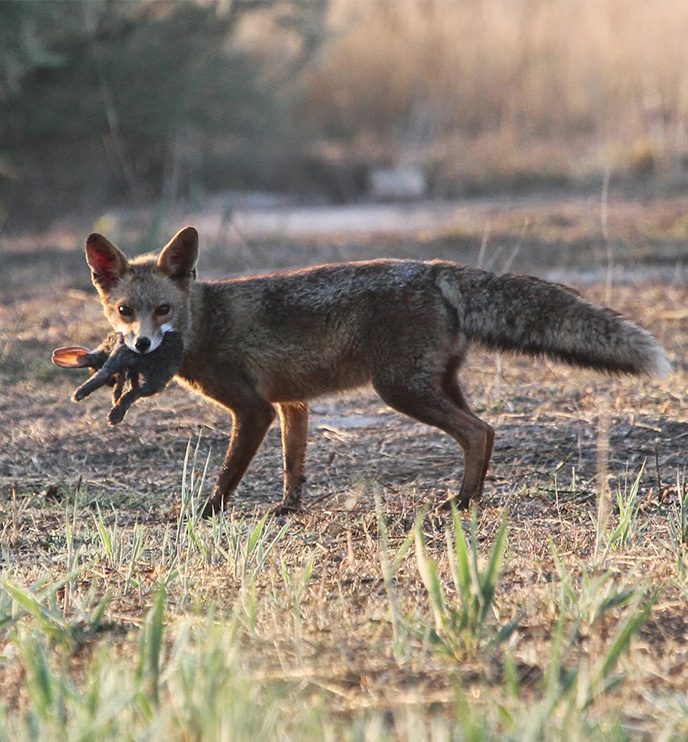
Control of predators
Our estates are managed 365 days a year by our rangers, thus providing all the support, maintenance and care that is needed to correctly manage hunting activities, and an effective and necessary control of predators with the applicable administrative authorisations, so that the following season is very well prepared.
We monitor agricultural damage and contribute to reducing road accidents
Wherever possible, we prevent the spread of agricultural damage caused by rabbits and wild boar to agricultural crops, olive groves, vines and other crops, which are extremely prevalent in these rural areas.
By monitoring the overpopulation of foxes and wild boars, we cut down on the number of traffic accidents.

We foster the breeding of protected species
For every EURO spent by our hunters, we carry out sustainable hunting management, contributing to the development of ALL species, feeding both game and non-game species, including protected and endangered species, that show up at our estates in search of food, water and serenity on an almost daily basis.
Alimentamos a 58 especies de depredadores, fomentando la cría de especies protegidas.
We hunters are true ecologists, because, what we do for free, others do for a fee.
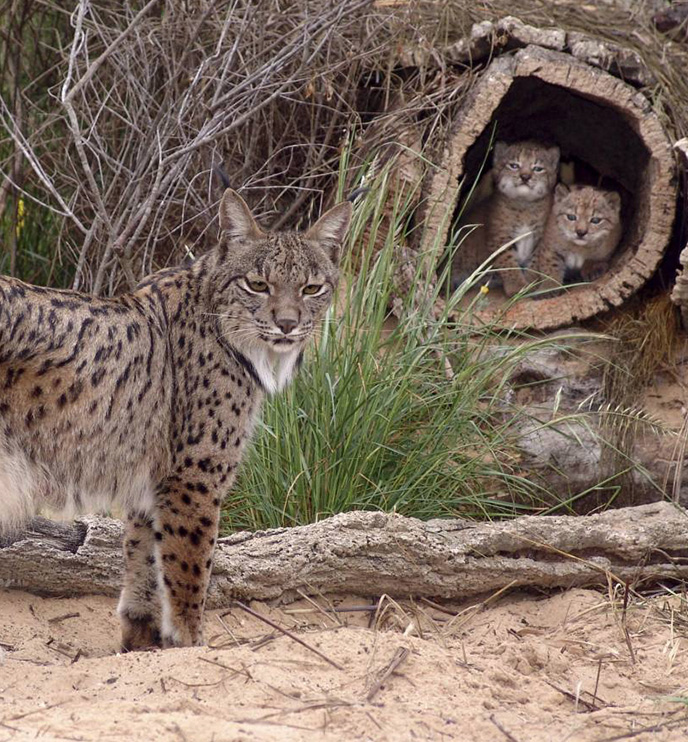
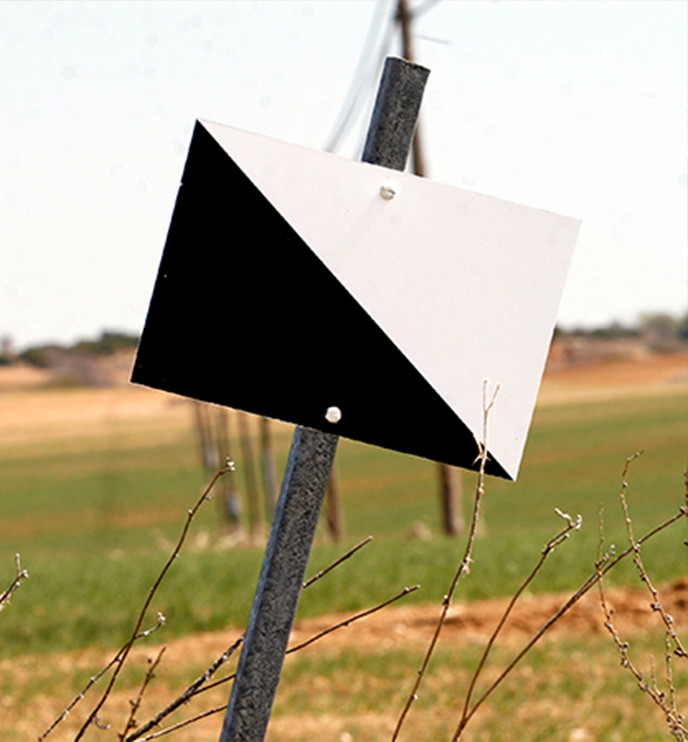
We enter into rural leases
Cacerías Campo de Montiel S.L, acquires the hunting rights to the hunting reserves by entering into private contracts with each of the private owners or joint owners’ associations of the land in each town, paying an annual rent to use this land, together with the respective taxes.
In addition to the foregoing, for each hunting reserve, we pay a hefty annual registration fee to the local council and another fee to the Hunting Federation, along with the respective taxes.
Leasing hunting reserves entails a significant number of administrative procedures, for which a lot of taxes and fees have to be paid.
We guard the countryside 24 hours a day, 365 days a year
We carry out surveillance work to spot poachers, thereby preventing rural thefts from farmhouses and crops. We also carry out anti-fire surveillance and health alert monitoring of animal diseases that are easily spread, such as tuberculosis, scabies, swine fever, rabies, brucellosis among many others, by alerting the authorities.
